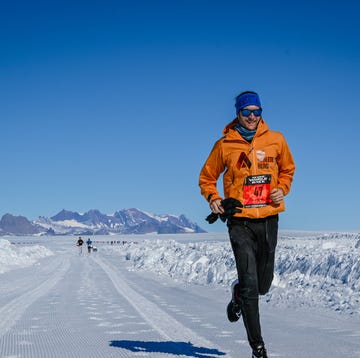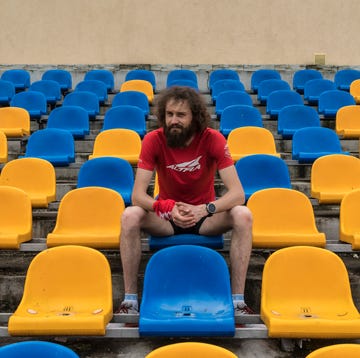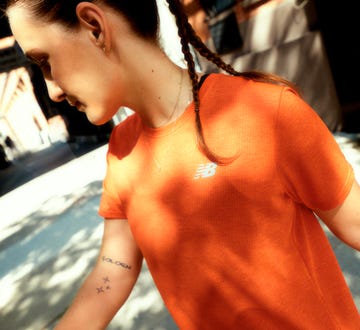On a sunny Tuesday afternoon, 11 students from Reflections Central, a San Diego high school for juvenile offenders, are running repeats up and down 100 stairs at San Diego's Convention Center. They finish, collapse at the top, and immediately start one-upping each other.
"How'd you do?" one boy asks. "I did 15."
"Well, I did 22," the other says.
Ryan Richter, a 17-year-old junior, has finished 23 sets. "Why don't you just make that an even 25?" asks Michael Rolan, the group's probation officer. "All right," Richter says, his face determined and serious. He turns around and heads back down for two more.
Richter is "unrecognizable" from when he first joined the running club, Rolan says later. "It was hard to be around him, his behavior was so bad, and now he's one of the staff's favorites. He started running with us and he found something he's successful in. It's built up his self-esteem."
Richter's transformation goes way beyond anything Rolan and teacher Cindy Stallo hoped for when they started Reflections's running club three years ago. Stallo, a dedicated runner, thought her students could apply the lessons learned via running--discipline, accountability, and the satisfaction of accomplishing a goal--to lives that can include neglectful parents, violent neighborhoods, drug addictions, and gangs. But pulling off workouts would be tricky. Students are court-ordered to attend the school for offenses ranging from shoplifting and gang violence to drugs. For students to leave school grounds for runs, a probation officer would have to join them. That's where Rolan came in. Rolan, who had just taken up the sport, was an easy sell.
Most students who join the club have never run more than a mile. But by the end of their time at Reflections (most are there for a year before transferring back to regular schools), they're running 5-Ks, 10-Ks, and half-marathons. "They haven't had a lot of chances to have success in their lives, and running is an area where it's simple to have success," Stallo says. "You set a goal and run toward it."
Jose Gallegos, a 17-year-old GED graduate who had two stints at Reflections, joined the club because it was one of few opportunities to leave school grounds. Since then, he's run six races, including two half-marathons. "I was disobedient," he says, "and running is teaching me to be responsible."
In addition to the two weekly afternoon workouts, at least one weekend a month, Stallo and Rolan are with students from 5 a.m. to noon for races--time they volunteer. Stallo says while they try to get sponsorships, she's spent at least $1,000 of her own money for race fees and shoes. But she says it's a good investment. "This is something positive, so I'm going to make it happen," says Stallo. "Running might be something that gives these kids a different direction for their lives."
Many students suffer setbacks. But some graduates of the club have made steps forward.
Dinial Baker, 18, left Reflections in March and is now taking classes at a San Diego community college. He'd never run before joining the group, and within three months he was at the starting line of a half-marathon. After mile eight, Baker said his stomach and feet hurt, but because Stallo was running beside him, he didn't want to quit. He finished in 2:13 and ran another half-marathon in June. "It never once crossed my mind that I could run 13 miles," Baker says. "I think better of myself now. I can accomplish anything I put my mind to."
San Diego's afternoon sun is scorching when Richter finishes his 25th set of 100 stairs. As he nears the top, he decides to go for 30. Stallo says she'll join him for his last five. She leans over and breathes heavily after each set, while Richter looks like he's enjoying himself. Richter, who quit smoking after joining the club, won his age group at a recent 8-K, clocking 39:57. Gallegos came in second with a 41:55. "Running feels good, it takes my mind off everything," Richter says. "I used to hate school, but run club makes it better."
Outcomes like that are why Stallo says she'll keep the club going as long as she can. "These kids have run out of people who want to help them because they've made so many mistakes," she says. "They just need somebody to tell them they can make it if they try."















